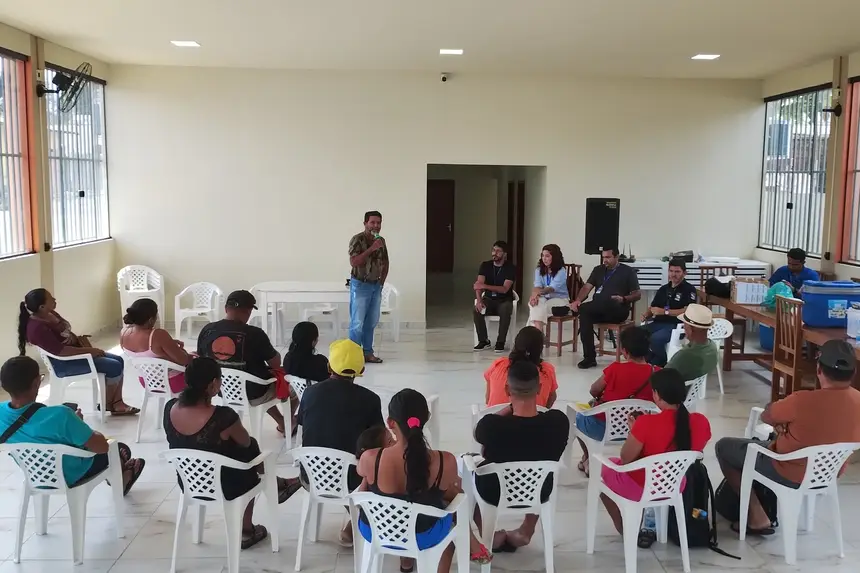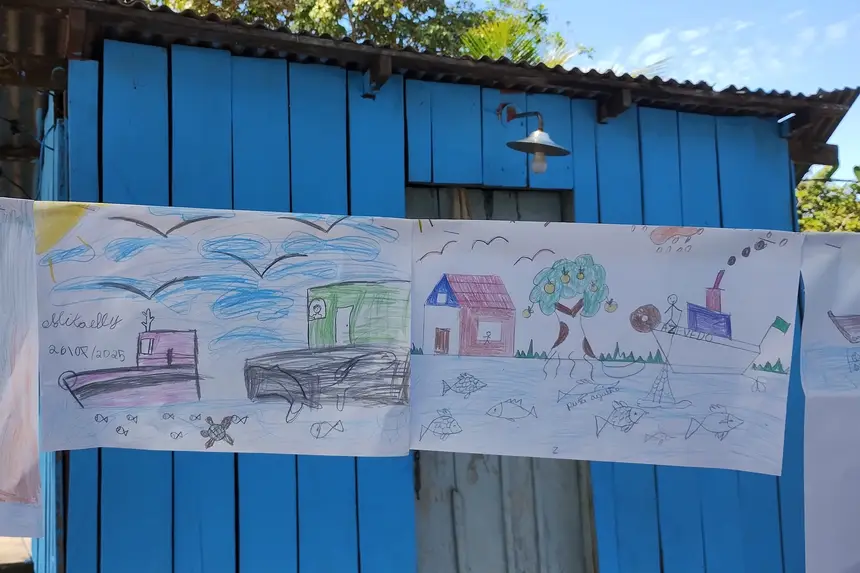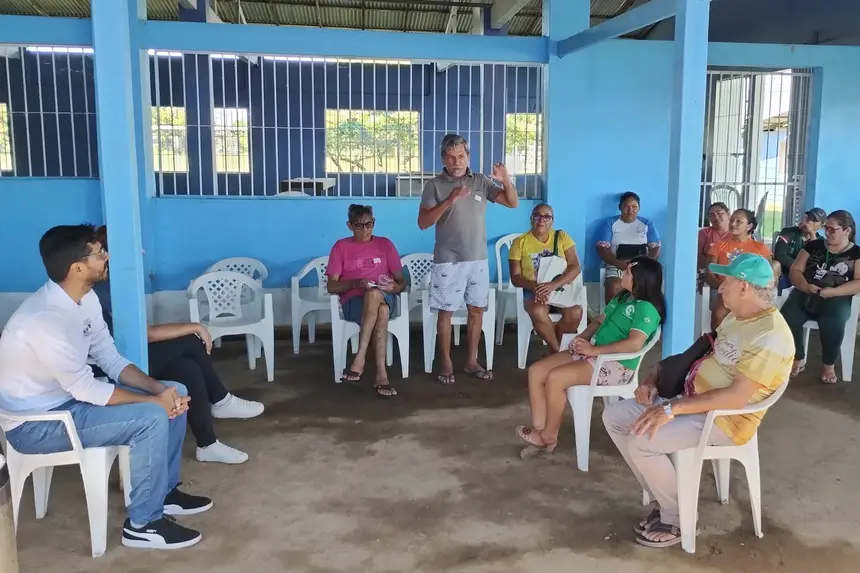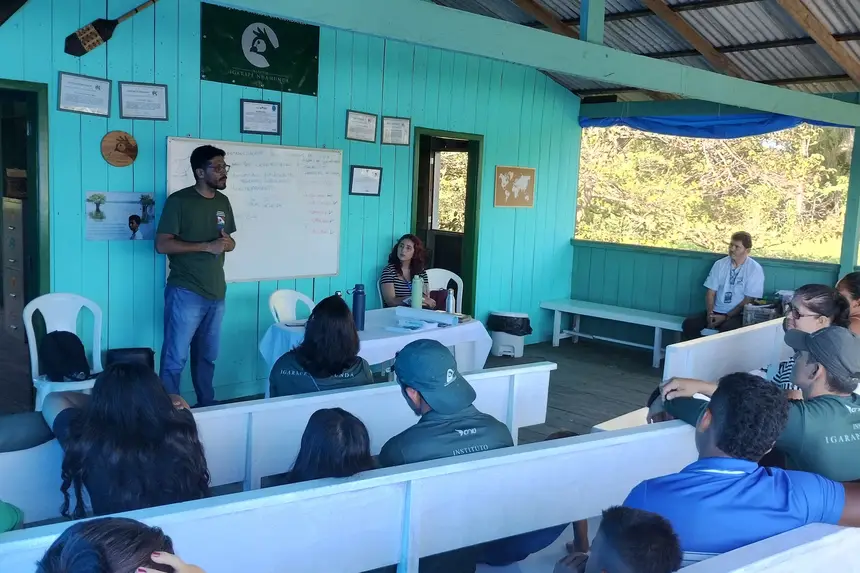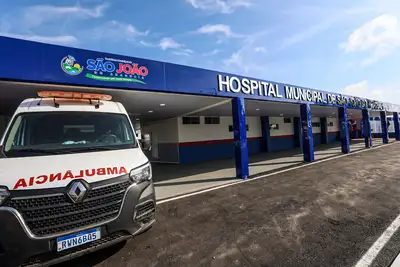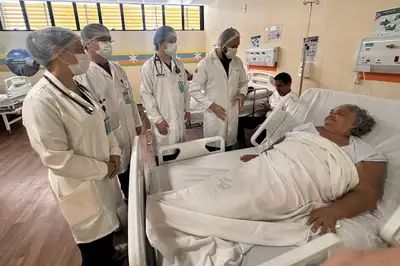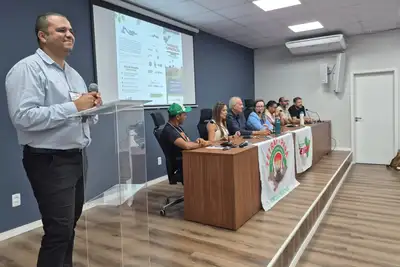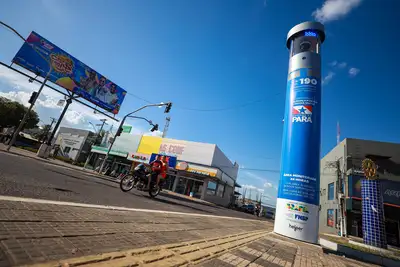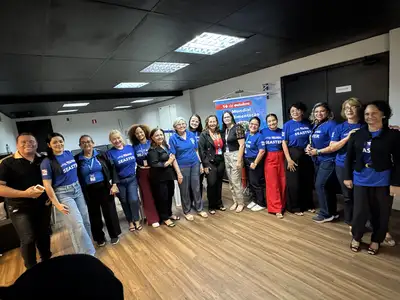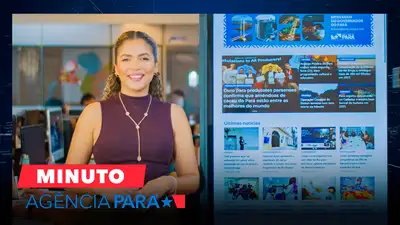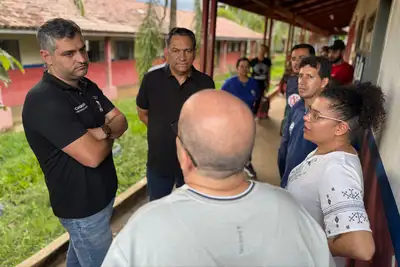Semas strengthens participatory management of fishery resources in Oriximiná
Workshops focused on sustainability involved the fishing agreements of Lake Sapucuá and Paraná de Matapi, as well as the Igarapé Nhamundá and Boca dos Currais
The State Secretariat for Environment, Climate and Sustainability of Pará (Semas) promoted, on Wednesday (30), workshops focused on sustainability and strengthening participatory management of fishery resources in the municipality of Oriximiná, in the Lower Amazon Integration Region, western Pará.
The action, carried out by the Undersecretariat for Environmental Management and Regularity (Sagra), involved the fishing agreements of Lake Sapucuá and Paraná de Matapi, as well as the Igarapé Nhamundá and Boca dos Currais, and is part of the implementation of the Regulariza Pará Program, in partnership with the company Hidrovias do Brasil.

Israele Silva, a resident of the São Sebastião community, highlighted the importance of dialogue with the communities. "The importance of the Fishing Agreement in our community is that we can already see a significant increase in the number of fish. We also noticed a decrease in predatory fishing in our territory. The signage was fundamental for this change, helping to reduce this type of fishing. We are very happy to have received this team, which carried out environmental education work with us, so that we can better understand the Fishing Agreement, comprehend our rights and duties. We thank everyone for being here," said Israele.
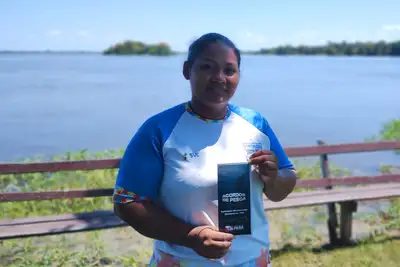
Sustainable policy - The campaign carried out a series of activities focused on environmental education, training of monitors for the agreements, capacity building for fishermen for self-monitoring of fishing, socioeconomic surveys of the involved communities, and consolidation of the implementation of signage in the agreed areas.
"Making a public policy effective, stable, and sustainable in the long term requires a continuous exercise of implementation, with active participation from artisanal fishermen, the direct recipients of the state fishing agreements policy. Recognizing the community's involvement in this construction is essential for the balance of resource use, sustainability of the riverside bioeconomy, and effectiveness of fishery management," stated Semas' Deputy Secretary, Rodolpho Zahluth Bastos.
In the territory of Lake Sapucuá and Paraná de Matapi, technical teams visited ten communities: Aimim, Castanhal, São Pedro, Boa Nova, Saracá, Casinha, Vila Ribeiro, Amapá, Curral Velho, and Ajará. In these locations, meetings were held with community members to present the objectives of the agreements, clarify the current rules, and align the next steps of the campaign.
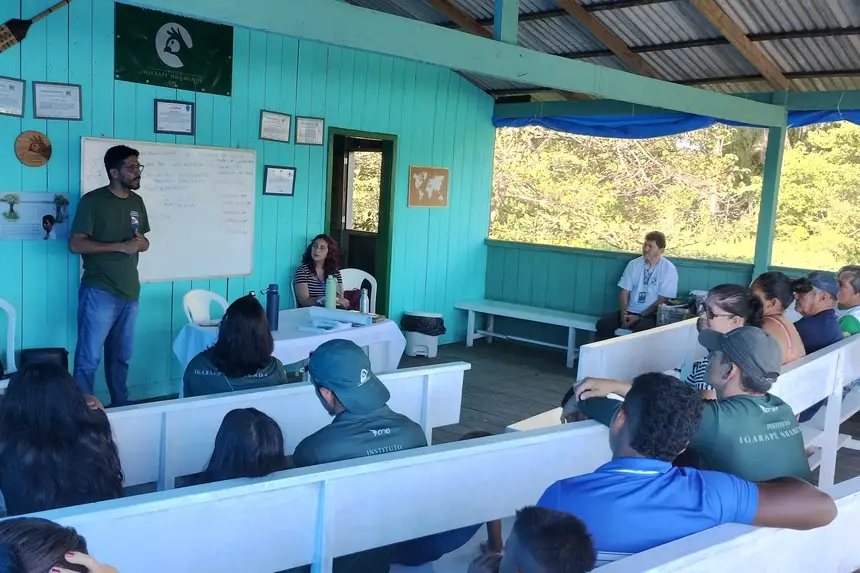
Autonomy - During the action, the process of training for self-monitoring of fishing began, which consists of the fishermen themselves recording data about vessels, gear used, species captured, quantities, sizes, consumption, and commercialization of fish. The monitoring will be carried out over 12 months and will involve a group of local monitors, already formed during this stage.
Another highlight was the delivery of signage for the fishing agreements, with the definition of priority areas for the installation of further signage in the coming weeks. Semas also delivered a boat to the Association of Communities of Glebas Trombetas and Sapucuá (ACOMTAGS). In total, 108 people participated in the activities in the territory of Lake Sapucuá.
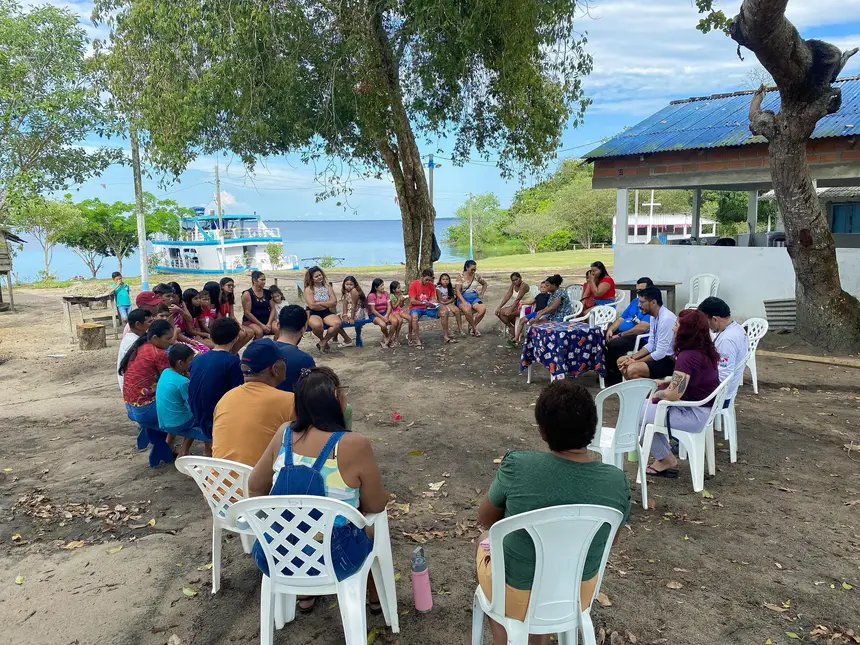
Emerson Carvalho da Silva, organizational coordinator of the Fishing Agreements in Oriximiná and administrative director of ACOMTAGS, emphasized that the agreements result from the democratic mobilization of the communities, thanked Semas for its support, and highlighted the importance of training in environmental education for community agents, aiming to strengthen actions in all involved communities.
"This support we are receiving today is the result of the collective struggle of the communities, which built the fishing agreements in a democratic and participatory manner. The delivery of the kits and the boat represents an important advancement, but it also reinforces our responsibility to continue training our community environmental agents. Environmental education is essential to ensure the sustainability of our territories," stated Emerson Carvalho da Silva.
Inspection - In the fishing agreement of Igarapé Nhamundá and Boca dos Currais, in addition to educational and training activities, technical inspections were carried out on the signs installed in the first half of this year, mobilizing 54 people in this stage.
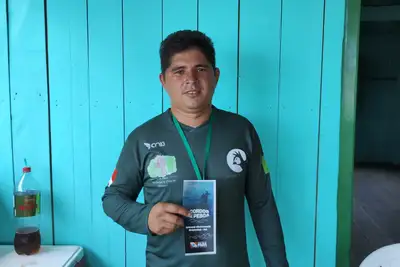
Arilson Farias, a resident of the Santa Cecília community and one of the monitors of the Fishing Agreement, commented that monitoring is a way to prevent irregularities. "I was happy to see our supporters from Semas here with us, collaborating in our work. I learned many things from the activities we carried out here at the Institute. I am one of the monitors and, from now on, we will pass more information to Semas. It is important to have this monitoring because it is essential to be attentive, listening and observing possible invaders, as well as guiding community members who are in irregular situations," added the resident.
Text: Mário Gouveia - Ascom/Semas



